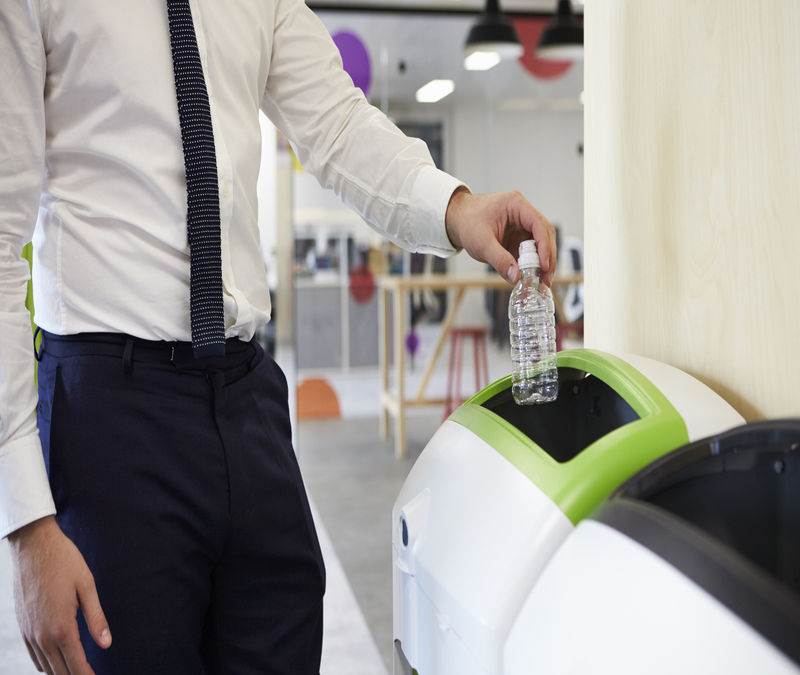Introduction
As companies become more conscious of their environmental impact, office recycling has become an important part of the corporate responsibility agenda. However, it can be a daunting task to implement a recycling program in a busy workplace. Many employees may not know what can be recycled, or may not have the time or resources to sort and dispose of their waste properly.
In this article, we’ll share some practical tips and tricks to help make office recycling easy and hassle-free. From setting up a recycling program to educating employees, we’ll cover everything you need to know to make your workplace more eco-friendly.
The Benefits of Office Recycling
Before we dive into the practical tips, let’s take a moment to discuss the benefits of office recycling. Not only does it help reduce waste and conserve natural resources, but it can also have a positive impact on your bottom line.
Here are some of the key benefits of office recycling:
- Reduce waste: Recycling helps divert waste from landfills and reduces the amount of trash that ends up in the environment.
- Conserve resources: Recycling conserves natural resources such as timber, water, and minerals, which helps to protect the environment.
- Save money: Recycling can help reduce waste disposal costs, as well as save money on the purchase of new materials.
- Boost your brand: Implementing a recycling program can enhance your company’s reputation and demonstrate your commitment to sustainability.
Tips for Setting up an Office Recycling Program
Now that we’ve covered the benefits of office recycling, let’s look at some practical tips for setting up a recycling program in your workplace.
- Conduct a waste audit: Before you can implement a recycling program, you need to know what types of waste your office generates. Conduct a waste audit to identify the types of materials that can be recycled and the volume of waste that needs to be disposed of.
- Identify recycling options: Once you’ve conducted a waste audit, research recycling options in your area. Contact Recycle Boston to find out what materials they accept and how they should be sorted.
- Provide recycling bins: Make it easy for employees to recycle by providing recycling bins throughout the office. Place bins in convenient locations, such as near printers and in common areas.
- Label bins clearly: Label recycling bins clearly with the types of materials that should be placed in them. This will help employees sort their waste properly and reduce contamination.
- Educate employees: Provide training and education to employees on how to properly sort and dispose of their waste. This can include posters, emails, or training sessions.
What Can be Recycled in the Office?
Now that you’ve set up a recycling program in your office, it’s important to educate employees on what can and cannot be recycled. Here are some common items that can be recycled in the office:
- Paper: Office paper, newspapers, and magazines can be recycled.
- Cardboard: Corrugated cardboard boxes can be recycled.
- Plastic: Plastic bottles, containers, and packaging can be recycled.
- Metal: Aluminum cans, tin cans, and other metal items can be recycled.
- Electronics: Computers, printers, and other electronics can be recycled.
It’s important to note that not all types of paper, plastic, or metal can be recycled. Check with Recycle Boston to find out what materials they accept.
Common Recycling Mistakes to Avoid
While recycling may seem straightforward, there are some common mistakes that can lead to contamination and waste. Here are some mistakes to avoid when recycling in the office:
- Putting food waste in recycling bins: Food waste should never be placed in recycling bins. It can contaminate the recycling stream and attract pests.
- Recycling plastic bags: Plastic bags cannot be recycled in most curbside programs. Instead, reuse them or bring them to a designated drop-off location.
- Not rinsing containers: Containers should be rinsed before being placed in the recycling bin. Food residue can contaminate the recycling stream.
- Putting non-recyclable items in recycling bins: Items such as Styrofoam, bubble wrap, and plastic utensils cannot be recycled in most programs. Check with Recycle Boston to find out what materials they accept.
By avoiding these common mistakes, you can help ensure that your office’s recycling program is effective and sustainable.
FAQs
Q: How do I know if an item is recyclable? A: Check with Recycle Boston to find out what materials they accept. In general, items that are made of paper, plastic, metal, or glass can be recycled.
Q: How can I encourage my coworkers to recycle? A: Provide education and training on the benefits of recycling, and make it easy for employees to recycle by providing clearly labeled bins in convenient locations.
Q: What should I do with electronic waste? A: Electronic waste should be recycled through a designated e-waste recycling program. Check with Recycle Boston to find out where you can recycle electronic waste in your area.
Conclusion
Implementing a successful office recycling program takes time and effort, but the benefits are well worth it. By reducing waste, conserving resources, and saving money, you can help create a more sustainable workplace and make a positive impact on the environment.
Follow the tips and tricks outlined in this article to make office recycling easy and hassle-free. With the right education, infrastructure, and commitment, you can create a greener workplace and set an example for others to follow. Together, we can make a difference and create a better future for our planet.
